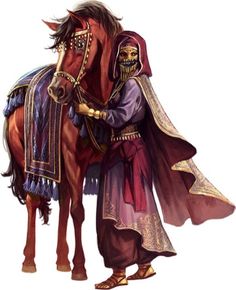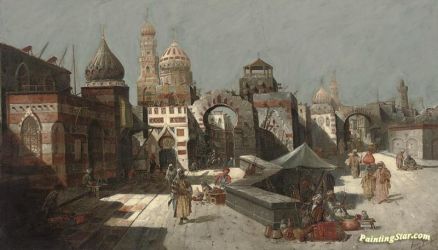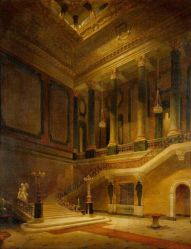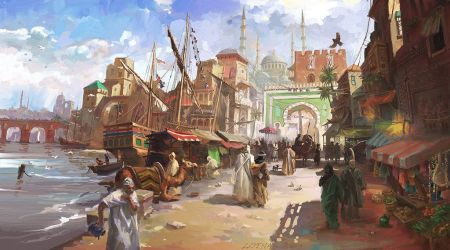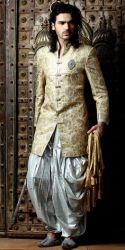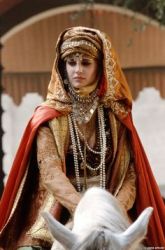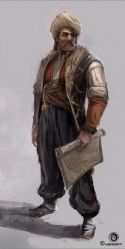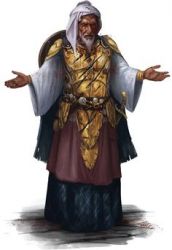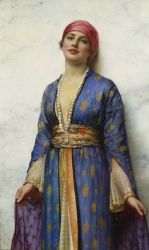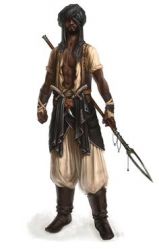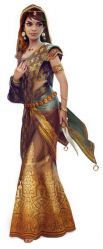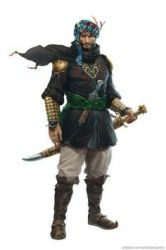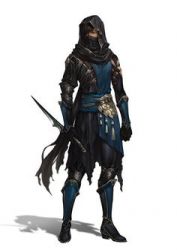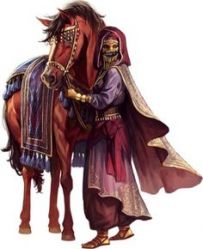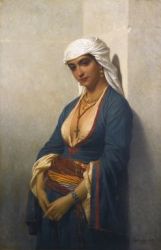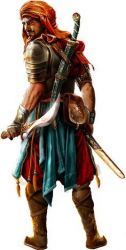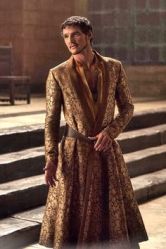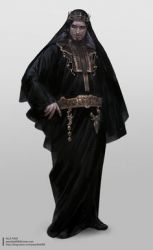Changes: Sim Layout, City-States, RPCSS Factions, and Storyline. Read More
Difference between revisions of "Arjat"
From The Citadel
| (14 intermediate revisions by the same user not shown) | |||
| Line 1: | Line 1: | ||
| − | [[image:Arjat_23.jpg|350px|right]]''A blend of the medieval Middle East, the Arabian Nights, Dorne, and | + | [[image:Arjat_23.jpg|350px|right]]''A blend of the medieval Middle East, the Arabian Nights, Dorne, and Zephrin of Comraich.[[category:Character]][[category:TOC]] |
| + | |||
| + | <I>"The Genobi is glorious and Arjat her crowning jewel",</i> they would cry upon nearing the golden walls of the city. Certainly, the Genobi desert is magnificent with its deep dunes and red gold mountains, and none would disagree, except perhaps the Bantu, that Arjat is the most beautiful of the southern cities. Arjat is an array of color; hanging rugs and tapestries to brightly painted doorways, soft pastel adobe, gleaming domes, and vibrant florals. | ||
| + | |||
| + | The Zuberi people are primarily goat herders who bring their herds to Arjat to sell. In turn, they buy grain, wine, flax, and vegetables brought in from the continually contested flood plains, as well as dates and other fruit from the high coastal farms. Only the city-dwellers, the Jabbah, have any taste for fish which is a staple of their diet. | ||
| − | |||
| − | |||
| − | |||
; Personality | ; Personality | ||
| − | + | Zuberi are welcoming and hospitable to Guests, and easily offended when in the company of rudeness, they are a people highly focused on their hobbies and occupations, prefer small-talk before getting down to business as personal relationships are important to the business. Polite society calls for overt courtesy, the avoidance of giving insult, and long social events. Zuberi events are almost always arranged to provide spaces to lounge. | |
| − | + | ||
| − | + | Privately, they are intense and silent, as if everyone was an introvert by nature, needing to recharge themselves for the next social gathering. In the rooms behind the Dewaniah, the Zephrin people create an oasis of reflection and solitude, where they may enjoy the company of their families, their studies, and their businesses. | |
| − | + | ||
| + | The Zuberi arrange themselves along tribal lines much like the Bantu people of [[Bheka]]. Family and tribal ties drive both business and politics. They are ruled by a priest-king and a council of tribal advisors. Each new ruler of the Zuberi people is considered to be divinely appointed. Those born in the desert are called [[Foundlings|Shaula]], and those born within the city are called Jabbah. | ||
| + | |||
| + | Where they not in a continual battle for limited resources the Bantu people would be their natural ally as they share many cultural similarities. They consider the Dyrlings and Euresu habit to stick to the letter of the law to be untrustworthy and therefore traditionally ally with the Alfarians to the north. | ||
; Appearence | ; Appearence | ||
| − | The Zuberi are dark | + | The Zuberi are dark-skinned, from caramel to espresso with black hair unless it is dyed henna red. They typically have bright green or gold eyes. They are of average height for humans. They usually wear their hair and beards oiled, and the women wear both henna (temporary tattoos), and harquus (permanent black tattoos in specific patterns). |
Compared to their neighbors, the Zuberi are both more modest in coverage and more outrageous in their choice of clothing, with unusual color choices and pattern combinations. They favor a fantasy influenced style from Turkey and the Middle East, and tales of the Arabian Nights, and Sinbad The Mariner. Indian sarees, jewelry, and gold-threaded trim are popular. Men favor long tunics of silk and brocade, usually with high necks, or wrapped tunics. Men and well as women tend towards a flamboyant style with a lot of draped cloth in the form of sashes, shawls, scarves, and head wraps. | Compared to their neighbors, the Zuberi are both more modest in coverage and more outrageous in their choice of clothing, with unusual color choices and pattern combinations. They favor a fantasy influenced style from Turkey and the Middle East, and tales of the Arabian Nights, and Sinbad The Mariner. Indian sarees, jewelry, and gold-threaded trim are popular. Men favor long tunics of silk and brocade, usually with high necks, or wrapped tunics. Men and well as women tend towards a flamboyant style with a lot of draped cloth in the form of sashes, shawls, scarves, and head wraps. | ||
; Traditions | ; Traditions | ||
| − | + | ||
| − | + | Acrab is known as the Protector of the Unfortunate, the Desperate, and the Enslaved. His prophet is known as Mises who led the Zuberi people to their home here in Arjat. There are three sets of documents in the religion of Acrab. The first is the Ancient Book of Tombs, a partially preserved set of papyrus scrolls taken during the [[History|exodus]]. This set of scrolls contains the entirety of the commandments from which the [[Talk:Arjat|primary commandments]] were taken, as well as prayers and invocations to older gods, many of which become adapted for Acrab. The second book is the Book of the Prophets and contains all of the writing of the various priest-kings since Mises. The third book is the daily prayer book known as the Book of the Heavenly Horse. Prayers are said twice a day, at dawn and sunset. | |
| − | + | ||
| + | Burial traditions hold that a person is to be embalmed and then entombed, not buried or burned. The spirit of the person travels deep into the desert to stand before Acrab to be judged. Depending on the judgment, the person will be re-incarnated according to the value of their life and, in some cases, returned to their body and re-animated. | ||
;[[Talk: Arjat |Expanded Lore]] | ;[[Talk: Arjat |Expanded Lore]] | ||
:Further reading and links for the culture obsessed. | :Further reading and links for the culture obsessed. | ||
| + | ;[[History]] | ||
| + | ;[[Timeline]] | ||
<hr> | <hr> | ||
===Small Council NPCs=== | ===Small Council NPCs=== | ||
| + | {| class="wikitable" style="width: 100%; | ||
| + | !style="width: 200px;" | Role | ||
| + | !Description | ||
| + | |- | ||
| + | |Imraan al'Anbar<br>''Ruler | ||
| + | |The current Priest-King of Arjat is a man of great presence; tall, lean, dressed in black, he came to the title of Priest-King late in his life after he successfully negotiated a century-long agreement with the Shaula and the Jabbah. He was called to service by the Order of Priests in his 60th year. Imraan is a man who listens to his advisers, and then commands actions. He is decisive and skilled at playing a long and careful waiting game with his enemies. His closest advisor is Darrus Mustaffin, the "Bedouin King". | ||
| + | |- | ||
| + | |Darrus Mustaffin<br>''Diplomat | ||
| + | |Darrus Mustaffin is the Bedouin King, the voice of the Shaula, which is an elected position chosen among the various tribal leaders to represent them in the city. The Jabbah priest-king rules overall but he also know how important it is that the lifeline that stems from the herders and merchants who travel the desert remain content under the rule of the great city of Arjat. The Bedouin king is greatly respected but holds little real power, he is simply a voice but it's a voice listened to whenever possible. Darrus Mustaffin is no stranger to politics and works ceaselessly for the Shaula. Unfortunately the tribal infighting and varied differences makes it hard to prioritize. He is intelligent and thoughtful, hard to anger, and a man with three wives who has many children and grandchildren. He seeks only success for his people. That is not to say he has not ruined the lives of those that stand in his way but it is his last possible choice. He relies heavily on the relationships he has built over his long years in his position. | ||
| + | |- | ||
| + | | Yetkin Sedef <br>''Warlord | ||
| + | |Yetkin is one of the Faris, an ancient order of knights which believe their chivalric virtue is even more important than religious doctrines, according to the traditional Zephrin saying, “There is no Religion without Virtue.” Yetkin is the true ideal of a genuine Faris, and commands the virtues of dignity, eloquence, gentleness, horsemanship and artistic talent, as well as strength and skill with weaponry. His closet companion is said to be Yaesmin, his Ibn'Najm -- one of the precious horses of Arjat. | ||
| + | |- | ||
| + | |Hasan Gimbaranos<br>''Coinmaster | ||
| + | |A merchant king of the Shaula, Hasan deals in wine, slaves, women, and song. He deals in many things and rules over a dozen lessor merchant houses which runs out of Arjat and into the other city-states. Not only does he act on his desires but he is also known as a rather selfish spy. Everything is for sale and even the priest king has purchased his services before. He hears endless things along the corridors and knows the safest routes. There is no city he has not seen and his life is now one where he can go and be whatever he wants wherever he wants. Still, his heart and his wife lie in Arjat. | ||
| + | |- | ||
| + | |Madar Witarasu<br>''Spy Master | ||
| + | | Madar is one of the most insidious forces in the city of Arjat, known as a specialist in torture and interrogation his spy network, the Guild of Shallow blades, is one of the greatest within the city itself. They are an independent police force that only targets foreign and internal threats. The guild is autonomous as they simply work on behalf of the city letting their liege lord be the light while they act in the darkness. In fact, it is so separated that on occasion it has brought kings in direct conflict with the guild. Madar is a zealot of his order and looks to keep his lord safe no matter the cost even if he is executed for his options. If his death betters his king he welcomes the sacrifice. | ||
| + | |} | ||
| + | |||
===Phrases=== | ===Phrases=== | ||
Latest revision as of 21:31, 3 March 2021
A blend of the medieval Middle East, the Arabian Nights, Dorne, and Zephrin of Comraich.
"The Genobi is glorious and Arjat her crowning jewel", they would cry upon nearing the golden walls of the city. Certainly, the Genobi desert is magnificent with its deep dunes and red gold mountains, and none would disagree, except perhaps the Bantu, that Arjat is the most beautiful of the southern cities. Arjat is an array of color; hanging rugs and tapestries to brightly painted doorways, soft pastel adobe, gleaming domes, and vibrant florals.
The Zuberi people are primarily goat herders who bring their herds to Arjat to sell. In turn, they buy grain, wine, flax, and vegetables brought in from the continually contested flood plains, as well as dates and other fruit from the high coastal farms. Only the city-dwellers, the Jabbah, have any taste for fish which is a staple of their diet.
- Personality
Zuberi are welcoming and hospitable to Guests, and easily offended when in the company of rudeness, they are a people highly focused on their hobbies and occupations, prefer small-talk before getting down to business as personal relationships are important to the business. Polite society calls for overt courtesy, the avoidance of giving insult, and long social events. Zuberi events are almost always arranged to provide spaces to lounge.
Privately, they are intense and silent, as if everyone was an introvert by nature, needing to recharge themselves for the next social gathering. In the rooms behind the Dewaniah, the Zephrin people create an oasis of reflection and solitude, where they may enjoy the company of their families, their studies, and their businesses.
The Zuberi arrange themselves along tribal lines much like the Bantu people of Bheka. Family and tribal ties drive both business and politics. They are ruled by a priest-king and a council of tribal advisors. Each new ruler of the Zuberi people is considered to be divinely appointed. Those born in the desert are called Shaula, and those born within the city are called Jabbah.
Where they not in a continual battle for limited resources the Bantu people would be their natural ally as they share many cultural similarities. They consider the Dyrlings and Euresu habit to stick to the letter of the law to be untrustworthy and therefore traditionally ally with the Alfarians to the north.
- Appearence
The Zuberi are dark-skinned, from caramel to espresso with black hair unless it is dyed henna red. They typically have bright green or gold eyes. They are of average height for humans. They usually wear their hair and beards oiled, and the women wear both henna (temporary tattoos), and harquus (permanent black tattoos in specific patterns).
Compared to their neighbors, the Zuberi are both more modest in coverage and more outrageous in their choice of clothing, with unusual color choices and pattern combinations. They favor a fantasy influenced style from Turkey and the Middle East, and tales of the Arabian Nights, and Sinbad The Mariner. Indian sarees, jewelry, and gold-threaded trim are popular. Men favor long tunics of silk and brocade, usually with high necks, or wrapped tunics. Men and well as women tend towards a flamboyant style with a lot of draped cloth in the form of sashes, shawls, scarves, and head wraps.
- Traditions
Acrab is known as the Protector of the Unfortunate, the Desperate, and the Enslaved. His prophet is known as Mises who led the Zuberi people to their home here in Arjat. There are three sets of documents in the religion of Acrab. The first is the Ancient Book of Tombs, a partially preserved set of papyrus scrolls taken during the exodus. This set of scrolls contains the entirety of the commandments from which the primary commandments were taken, as well as prayers and invocations to older gods, many of which become adapted for Acrab. The second book is the Book of the Prophets and contains all of the writing of the various priest-kings since Mises. The third book is the daily prayer book known as the Book of the Heavenly Horse. Prayers are said twice a day, at dawn and sunset.
Burial traditions hold that a person is to be embalmed and then entombed, not buried or burned. The spirit of the person travels deep into the desert to stand before Acrab to be judged. Depending on the judgment, the person will be re-incarnated according to the value of their life and, in some cases, returned to their body and re-animated.
- Expanded Lore
- Further reading and links for the culture obsessed.
- History
- Timeline
Small Council NPCs
| Role | Description |
|---|---|
| Imraan al'Anbar Ruler |
The current Priest-King of Arjat is a man of great presence; tall, lean, dressed in black, he came to the title of Priest-King late in his life after he successfully negotiated a century-long agreement with the Shaula and the Jabbah. He was called to service by the Order of Priests in his 60th year. Imraan is a man who listens to his advisers, and then commands actions. He is decisive and skilled at playing a long and careful waiting game with his enemies. His closest advisor is Darrus Mustaffin, the "Bedouin King". |
| Darrus Mustaffin Diplomat |
Darrus Mustaffin is the Bedouin King, the voice of the Shaula, which is an elected position chosen among the various tribal leaders to represent them in the city. The Jabbah priest-king rules overall but he also know how important it is that the lifeline that stems from the herders and merchants who travel the desert remain content under the rule of the great city of Arjat. The Bedouin king is greatly respected but holds little real power, he is simply a voice but it's a voice listened to whenever possible. Darrus Mustaffin is no stranger to politics and works ceaselessly for the Shaula. Unfortunately the tribal infighting and varied differences makes it hard to prioritize. He is intelligent and thoughtful, hard to anger, and a man with three wives who has many children and grandchildren. He seeks only success for his people. That is not to say he has not ruined the lives of those that stand in his way but it is his last possible choice. He relies heavily on the relationships he has built over his long years in his position. |
| Yetkin Sedef Warlord |
Yetkin is one of the Faris, an ancient order of knights which believe their chivalric virtue is even more important than religious doctrines, according to the traditional Zephrin saying, “There is no Religion without Virtue.” Yetkin is the true ideal of a genuine Faris, and commands the virtues of dignity, eloquence, gentleness, horsemanship and artistic talent, as well as strength and skill with weaponry. His closet companion is said to be Yaesmin, his Ibn'Najm -- one of the precious horses of Arjat. |
| Hasan Gimbaranos Coinmaster |
A merchant king of the Shaula, Hasan deals in wine, slaves, women, and song. He deals in many things and rules over a dozen lessor merchant houses which runs out of Arjat and into the other city-states. Not only does he act on his desires but he is also known as a rather selfish spy. Everything is for sale and even the priest king has purchased his services before. He hears endless things along the corridors and knows the safest routes. There is no city he has not seen and his life is now one where he can go and be whatever he wants wherever he wants. Still, his heart and his wife lie in Arjat. |
| Madar Witarasu Spy Master |
Madar is one of the most insidious forces in the city of Arjat, known as a specialist in torture and interrogation his spy network, the Guild of Shallow blades, is one of the greatest within the city itself. They are an independent police force that only targets foreign and internal threats. The guild is autonomous as they simply work on behalf of the city letting their liege lord be the light while they act in the darkness. In fact, it is so separated that on occasion it has brought kings in direct conflict with the guild. Madar is a zealot of his order and looks to keep his lord safe no matter the cost even if he is executed for his options. If his death betters his king he welcomes the sacrifice. |
